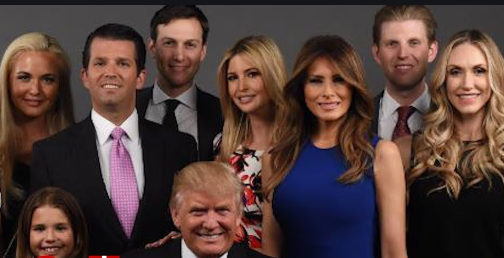In the following piece, Professor Aron Solomon give a primer on presidential pardons, especially as it relates to the waning moments of the Donald Trump presidency and reports of pardons for family members.
In an earlier piece, I predicted that one of the things Donald Trump would do as a lame duck president is begin to pardon a lot of people, ultimately perhaps himself.
This week finds him warming up his pardon pen, with talk of his active consideration of pardons for his family becoming viral on social media. What follows is a quick primer on the presidential pardon power and how it applies to any pardons involving his family.
Can a president grant preemptive pardons?
Yes.
“A preemptive pardon is a presidential pardon granted before any formal legal process has begun,” American University professor Jeffrey Crouch commented to National Public Radio this week.
In other words, let’s assume that a member of the president’s family has committed a federal crime. Given that the crime has already occurred, it can now be pardoned. The notion that a president must wait until the person is charged with the crime, indicted, pleadings are filed, there is a trial, and so on, is a legal fiction.
Even if he pardons his family?
Seemingly yes.
It is clear that family pardons are something President Trump is considering.
President Clinton issued a pardon for his half-brother Roger Clinton after he served a year in prison for pleading guilty to cocaine distribution charges. The pardon was one of 140 Clinton issued on his last day in office and the only presidential family pardon currently part of our nation’s historical record.
However, back to the point above, if President Trump pardons his family, what would be truly unprecedented is that he would be pardoning family members who are not currently accused of federal crimes. This is where things really become historically interesting.
Can he really pardon his wife?
Yes and maybe there’s a remote chance that there’s a no in there somewhere.
The is a longstanding legal doctrine about husband and wife called spousal privilege. In general, it permits a married criminal defendant to prevent his spouse from testifying against him. No matter the nature of a legal proceeding, either spouse holds a privilege to refuse disclosure of confidential communications made between the spouses while they remained husband and wife. Both spouses hold the privilege, and it does not matter which one is party to a case.
Even if President Trump and the current First Lady were to divorce, this does not terminate the privilege retroactively. Any confidential communications made before they divorced would remain protected from disclosure.
Is there a valid legal theory that could be constructed around the spousal privilege that would preclude a presidential spouse from a pardon? Maybe, but even if there were, this incarnation of the Supreme Court would be unlikely to entertain it for long.
Refresh my memory – does a presidential pardon apply to federal and state crimes?
No. Just federal crimes. So even if the president could preemptively pardon his family, he would not have the power to absolve them of the many potential state crimes that they may or may not have committed.
From what we know, most of President Trump’s current legal problems are at the state level in New York, where he is being investigated on a range of charges by Manhattan district attorney, Cyrus Vance. We don’t know the extent to which the investigation and potential state charge might extend to his family.
Will President Trump’s pardons be legally-binding?
Yes.
The pardon powers of the President are based on Article Two of the United States Constitution (Section 2, Clause 1), which provides: The President … shall have Power to grant Reprieves and Pardons for Offenses against the United States, except in Cases of impeachment.
The appearance of corruption in a presidential pardon means nothing legally.
When all is said and done there is really nothing that can be done to stop or even offer a viable challenge to President Trump’s forthcoming pardons. The presidential pardon authority is extremely broad and the Constitution intentionally provides no way for a presidential pardon to be reviewed.
That may be a little difficult to digest, especially with how many bitter and jagged pills we have had to consume in 2020, but it’s the truth.
But couldn’t the next Department of Justice pursue Trump for these pardons?
Yes but they won’t. It would be remarkably politically ill-advised and seen by Trump and his supporters as another witch hunt.
While the Biden DOJ could try to build a case around the illegality of corrupt pardons, the federal courts have recognized that pardon authority is at the discretion of the executive.
Absent a constitutional amendment (which isn’t coming in the next six week, if ever) limiting a president’s pardon power, this is probably a judicial and political hill on which the legal arms of the Biden administration should choose not to fight.
Aron Solomon is the Senior Digital Strategist for NextLevel.com and an Adjunct Professor at the Desautels Faculty of Management at McGill University.








